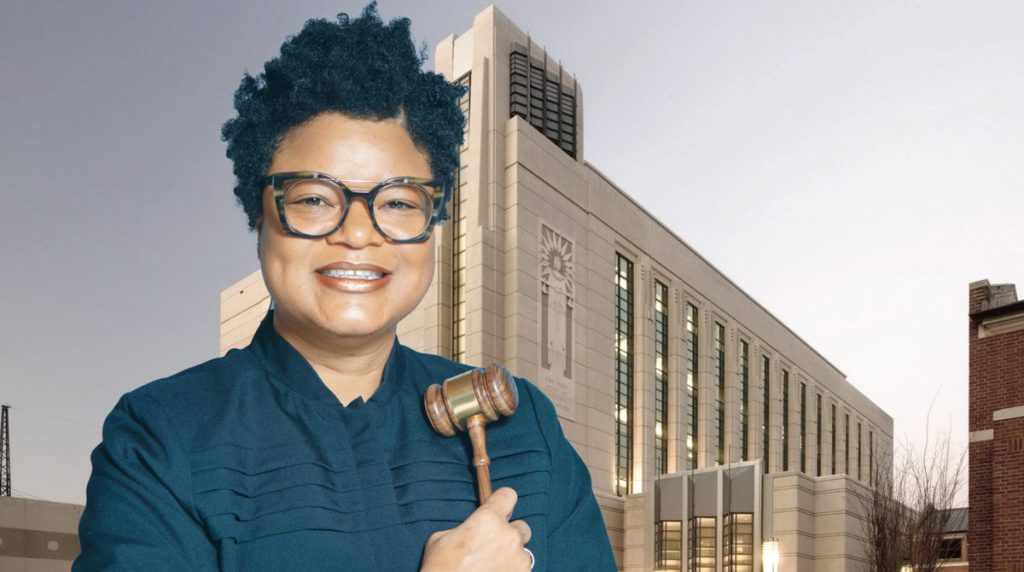NASHVILLE, TN — We can all agree that our criminal “justice” system is plagued with disparities and injustices. Over the past few years, a new term has been introduced to the masses and has been getting a lot of airtime as of late . . . Restorative Justice. What is all this talk about restorative justice and why now? We decided to ask Judge Rachel L. Bell her thoughts on restorative justice and find out more about the restorative justice programs and initiatives she has brought to the Davidson County judicial system.
Judge Bell, what is Restorative Justice?
Restorative Justice is defined as an approach to justice where one of the responses to a crime or dispute is to organize a meeting between the parties and sometimes with the representatives of the wider community. There are five basic principles: (1) invite full participation & consensus (2) work towards healing what has been broken (3) seek direct accountability (4) reintegrate where there has been division and (5) strengthen the community & individuals to prevent further harms. This means that instead of mere punishment for a crime, a more holistic approach is taken which considers all parties involved. For example, let’s say that a woman was caught stealing clothing from a store and somewhere along in the process it was determined that she was stealing because she could not afford to buy her children’s uniforms. Using a restorative justice model, the merchant (the victim), the DA, and the criminal defense attorney could agree to place the offender in a pre-trial diversionary court that would divert her case away from the standard criminal process. This diversion allows the offender to go through an intense program that would provide case management, possible job placement and other resources that may prevent the offender from reoffending.
Restorative justice is not only used in the criminal space but can also be used to resolve matters in the civil arena. For example, landlord/tenant matters and avoiding eviction. Once again, I must stress the importance that all parties involved must agree during all steps of the process.
You mentioned a Pre-Trial Diversionary Court, were you referring to the Music City Community Court’s “CARE Diversionary Court for Ages 18-30” that has garnered so much attention lately?
Yes. In 2018, the Music City Community Court which I serve as the Presiding Judge received a Community Court Grant from the Center for Court Innovation. The grant was awarded to provide technical assistance with starting the CARE Diversionary Court for Ages 18-30 (CARE) and other restorative justice courts if the need were to arise. We were on track to take our first participants at the beginning of 2020 when the tornado hit Nashville. Shortly after that the COVID-19 pandemic put a halt to getting the court completely off the ground. Luckily for the court, the grant’s technical assistance provided was able to be used in the development of an eviction diversion court which we named the LEGACY Housing Resource Diversionary Court (HRDC) to assist with the housing and impending homelessness crises. With that court over $12M has been paid to landlords and over 2000 families have kept a roof over their heads. This is an example of restorative justice in the civil arena.
The CARE Court is set up like the example I gave above. Offenders are referred to the court with the consent of the DA, Criminal Defense Attorney, and the victim. There must be a complete consensus for this to happen. The CARE Court is solely focused on restorative justice and the program only works if the victim agrees and will work through each phase with the CARE participant to ensure wholeness and restitution. In 2021, we were able to get back up and going and there have been 14 CARE participants with one graduate. The program is still in its pilot stage. Two of the participants have shared with us that the program saved their life. This is what restorative justice is about. Seeing the whole person, why they committed the crime in the first place, keeping families together and ensuring that the victim is made whole.
Any final thoughts?
There are so many opportunities within the criminal & civil justice system to think outside of the box and I have tried to do just that creating diversionary courts and restorative justice programs. I am excited to see how far we will have progressed with restorative justice programs within the next decade. Right now, we will work with what we have and continue to serve the citizens of Nashville, keeping our city and streets safe. I’m currently on the ballot and seeking re-election and would be honored to receive your vote.
To learn more about my platforms please visit: www.judgerachelbell.com


